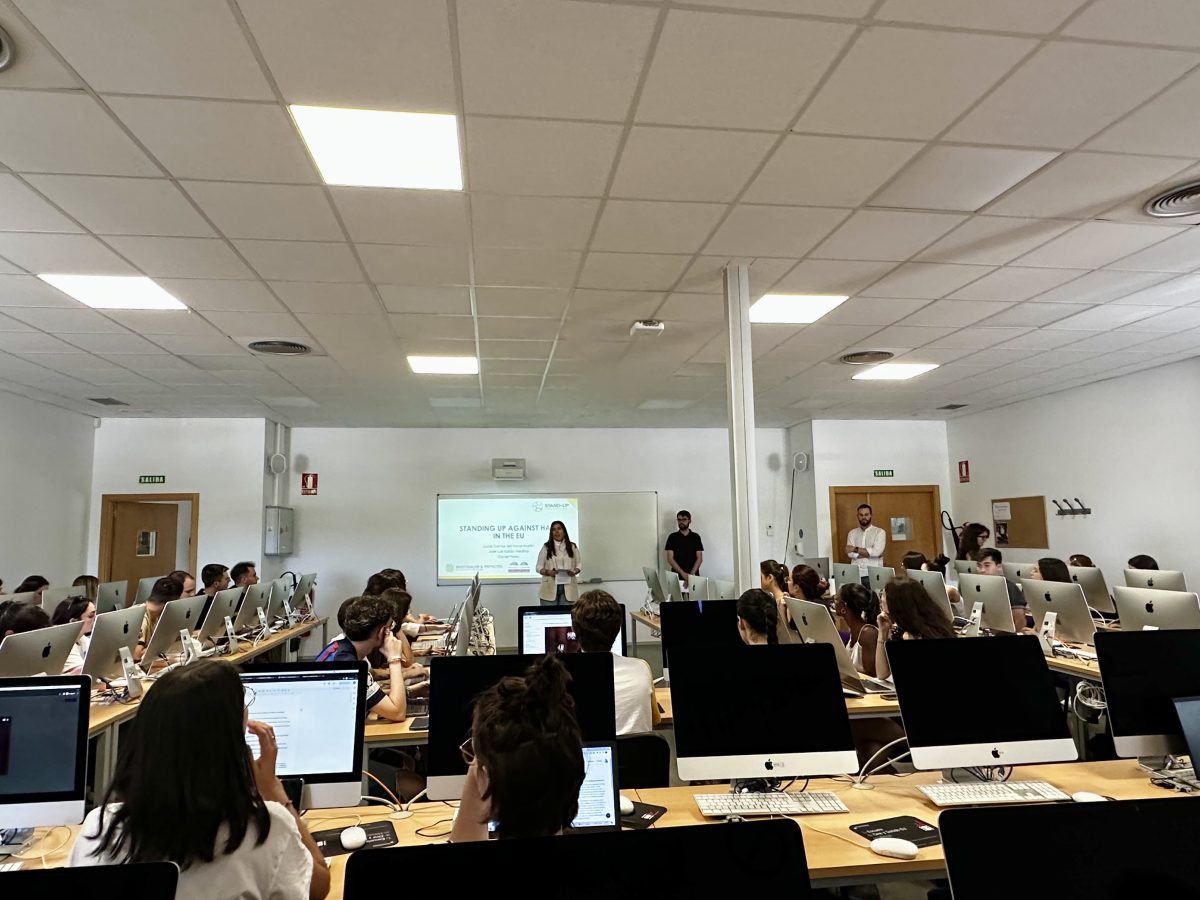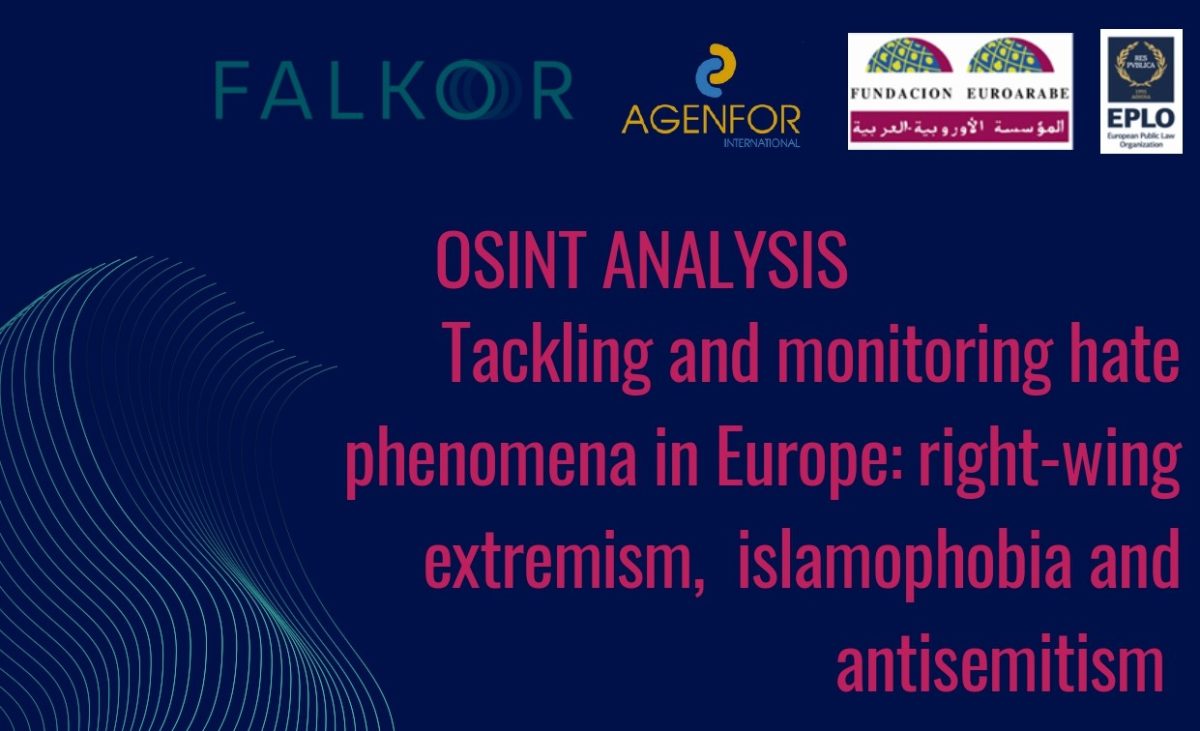The first phase of this training has focused on future professionals in this sector, with sessions given last week on 15 and 16 May at the Faculty of Communication Sciences of the University of Malaga (UMA) for students of Citizen Journalism and Social Networks of the Journalism Degree, and for students of Audiovisual Programming and Audience Analysis of the Audiovisual Communication Degree at the University of Granada (UGR).
The training package, developed by the Euro-Arab Foundation researchers Lucía García del Moral, José Luis Salido Medina and Daniel Pérez García, focused on three specific blocks: presentation of the results of the monitoring they have carried out in two fields, Islamophobia and extreme right-wing hate speeches, and a third block on alternative narratives as a response to hate speeches from a holistic perspective.
The Euro-Arab Foundation, a member of the STAND-UP consortium and responsible for its Communication package, has initiated this training as it understands that the media are a fundamental element in the chain of information and education of citizens because, according to the European Code of Ethics in Journalism, approved in 1993 by the Parliamentary Assembly of the Council of Europe, “the media assume an ethical responsibility towards citizens and society that is necessary to remember at the present time, when information and communication are of great importance for the development of citizens’ personalities as well as for the evolution of society and democratic life“.

The main objective of the STAND-UP project is to improve inter-agency cooperation in the fight against hate crime through the design, development and implementation of a new inter-agency model led by public authorities. Among the different actions developed by this project, funded by the European Commission’s Directorate-General for Justice and Consumers, is the design and implementation of training for civil society organisations, law enforcement agencies, prosecutors and judges on how to report, investigate, prosecute and prevent hate crime and discrimination.
The model developed by the STAND UP project, which involves institutions from four European countries: Spain, France, Greece and Italy, includes technological tools to improve the reporting, investigation, prosecution and prevention of hate speech and hate crime, as well as the exchange of data between different agencies; an established definition of hate crime; standardised templates for reporting hate crime (for law enforcement and civil society organisations) and an inter-institutional manual for victim support.












